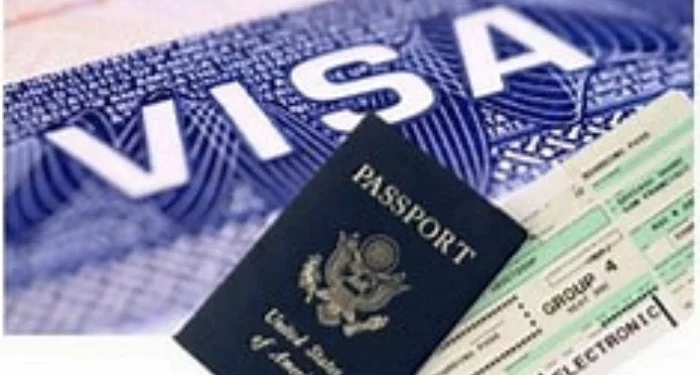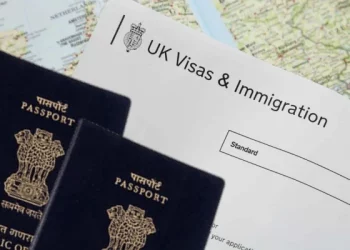Applying for a UK visa from Italy can seem like a complex process, but with proper guidance and preparation, it can be a smooth experience. Whether you’re planning to visit the UK for tourism, study, work, or family reasons, understanding the application steps is crucial. This article will provide a detailed guide on how to apply for a UK visa while in Italy, covering everything from the initial research to the final submission.
1. Determine the Type of Visa You Need
Tourist Visa
If you’re planning a short – term visit to the UK for leisure, sightseeing, or visiting friends and family, you’ll likely need a Standard Visitor Visa. This visa allows you to stay in the UK for up to six months. For example, if you’re an Italian citizen who wants to spend a month exploring London, Edinburgh, and other British cities, a Standard Visitor Visa is the right choice.
Student Visa
For those who wish to study in the UK, there are different types of student visas depending on the level of study. If you’re enrolling in a full – time course at a UK university, you’ll need a Tier 4 (General) Student Visa. You must have a Confirmation of Acceptance for Studies (CAS) from a UK – approved educational institution. For instance, if you’ve been accepted into a master’s program at the University of Oxford, you’ll need to obtain a CAS from the university before applying for the visa.
Work Visa
There are various work visas available for those looking to work in the UK. The Skilled Worker Visa is one of the common types. To be eligible, you need to have a job offer from a UK employer who is a licensed sponsor. The employer will provide you with a Certificate of Sponsorship. For example, if an Italian IT professional gets a job offer from a UK – based tech company, they can apply for a Skilled Worker Visa.
Family Visa
If you have family members who are UK citizens or settled in the UK, you may be eligible for a family visa. This could be a spouse visa if you’re married to a UK citizen, or a parent visa to join your children who are living in the UK. Each type has its own set of requirements regarding the relationship, financial stability, and accommodation.
2. Gather the Required Documents
Passport
You must have a valid passport. The passport should have at least six months of validity remaining from the date you plan to enter the UK. It should also have at least one blank page for the visa stamp. If you have any old passports, it’s advisable to submit them as well, as they can show your travel history.
Application Forms
Complete the relevant visa application form. You can fill it out online on the UK Visas and Immigration (UKVI) official website. Make sure to fill in all the information accurately, including your personal details, travel plans, and purpose of visit. For example, in the case of a tourist visa application, clearly state the cities you plan to visit and the duration of your stay.
Financial Documents
Bank Statements: Provide bank statements for the past six months. These statements should show your regular income, expenses, and a sufficient balance to cover your stay in the UK. For a tourist visa, having enough funds to cover accommodation, food, and transportation is essential. If you’re applying for a work or student visa, the financial requirements may be more specific, such as covering tuition fees and living expenses for the entire duration of the program.
Proof of Income: If you’re employed, provide a letter from your employer stating your job title, salary, length of employment, and the dates of your approved leave (if applicable). Self – employed individuals should provide business financial statements and tax returns.
Supporting Documents Based on Visa Type
Student Visa: Along with the CAS, you may need to provide transcripts of your previous education, certificates, and reference letters from your previous educational institutions.
Work Visa: In addition to the Certificate of Sponsorship, you may need to provide evidence of your qualifications relevant to the job, such as professional certificates or diplomas.
Family Visa: Provide documents to prove your relationship with the UK – based family member, such as marriage certificates, birth certificates, or adoption papers.
3. How to Apply for A UK Visa from Italy
Online Application
Create an Account: Go to the UKVI official website and create an account. This account will be used to fill out the application form, upload documents, and track the progress of your application.
Fill in the Application Form: Enter all the required information accurately. Double – check the details before submitting, as any mistakes can lead to delays or even rejection of your application.
Upload Documents: Scan and upload all the necessary documents in the specified format. Make sure the documents are clear and legible. For example, if you’re uploading a bank statement, ensure that all the transaction details are visible.
Biometric Information Submission
Appointment Booking: After submitting the online application, you’ll need to book an appointment at a Visa Application Centre (VAC) in Italy. The VACs are located in major cities like Rome, Milan, and Naples.
Biometric Collection: At the appointment, you’ll provide your biometric information, which includes fingerprints and a photograph. This information is used for identity verification and security purposes. The process is quick and usually takes only a few minutes.
Pay the Visa Fee
Fee Amount: The visa fee varies depending on the type of visa you’re applying for. For example, a Standard Visitor Visa costs a certain amount, while a Tier 4 Student Visa has a different fee structure. The fees are non – refundable, even if your visa application is rejected.
Payment Methods: You can pay the visa fee online using a debit or credit card, or through other approved payment methods. Make sure to keep the payment receipt as proof of payment.
4. The Waiting Period and Decision
Processing Time
The processing time for a UK visa can vary. For a standard tourist visa, it usually takes around 15 working days. However, during peak seasons or for more complex visa applications, such as work or family visas, it can take several weeks or even months. For example, if you apply for a work visa with a complex job role and additional requirements, the processing time may be longer.
Decision Notification
Positive Decision: If your visa application is approved, you’ll receive a notification. You can either collect your passport with the visa sticker from the VAC or have it mailed to you, depending on your choice during the application process.
Negative Decision: If your application is refused, the UKVI will provide reasons for the refusal. These could include insufficient documentation, doubts about your intention to return to Italy, or issues with your financial situation. You have the option to appeal the decision within a specified time frame, usually 14 days.
5. Tips for a Successful Application
Start Early
Begin the application process well in advance of your planned travel or study date. This gives you enough time to gather all the necessary documents, correct any issues, and submit a complete application. For example, if you’re planning to start a master’s program in the UK in September, start the visa application process at least three months before.
Provide Accurate and Complete Information
Make sure all the information you provide in the application form and the supporting documents is accurate and complete. Any false information or omissions can lead to the rejection of your application. For instance, if you misstate your income or provide incorrect travel plans, it can raise concerns for the visa officers.
Seek Professional Advice if Needed
If you’re unsure about any aspect of the visa application process, consider seeking advice from an immigration lawyer or a registered immigration consultant. They can provide personalized guidance based on your specific situation and help you increase your chances of a successful application.
Conclusion
In conclusion, applying for a UK visa from Italy requires careful planning, thorough preparation, and attention to detail. By understanding the visa types, gathering the right documents, following the application process correctly, and being patient during the waiting period, you can increase your chances of obtaining the UK visa you need. Whether it’s for a short – term visit or a long – term stay in the UK, a well – prepared application is the key to a successful outcome.
Related topics:



















